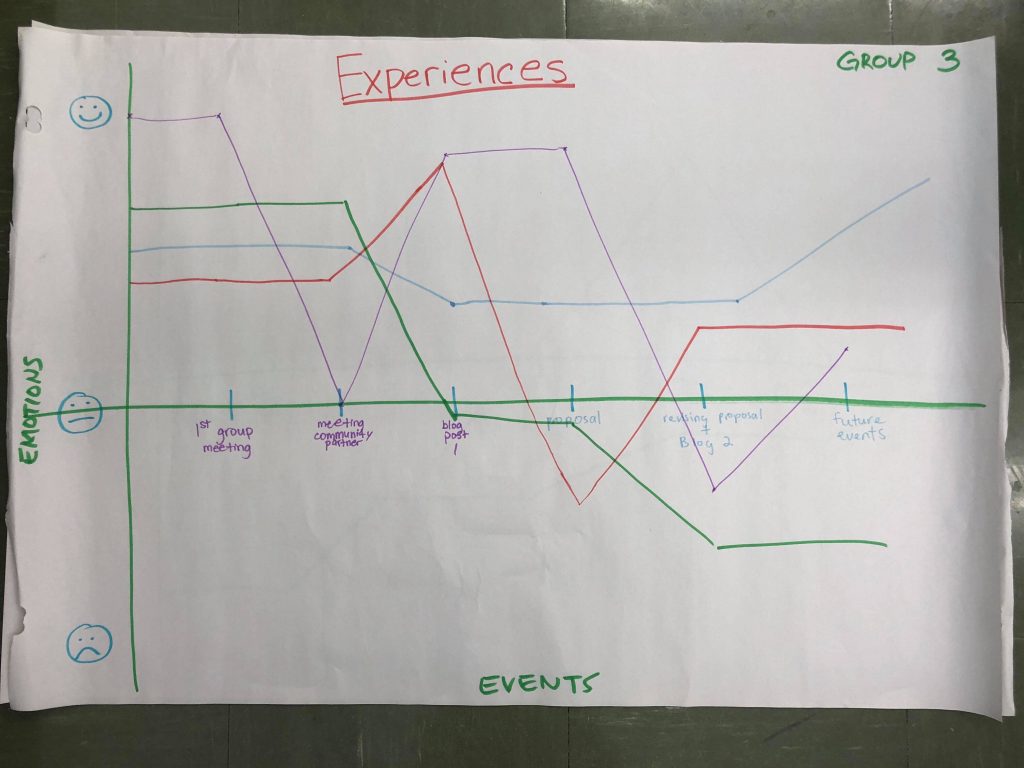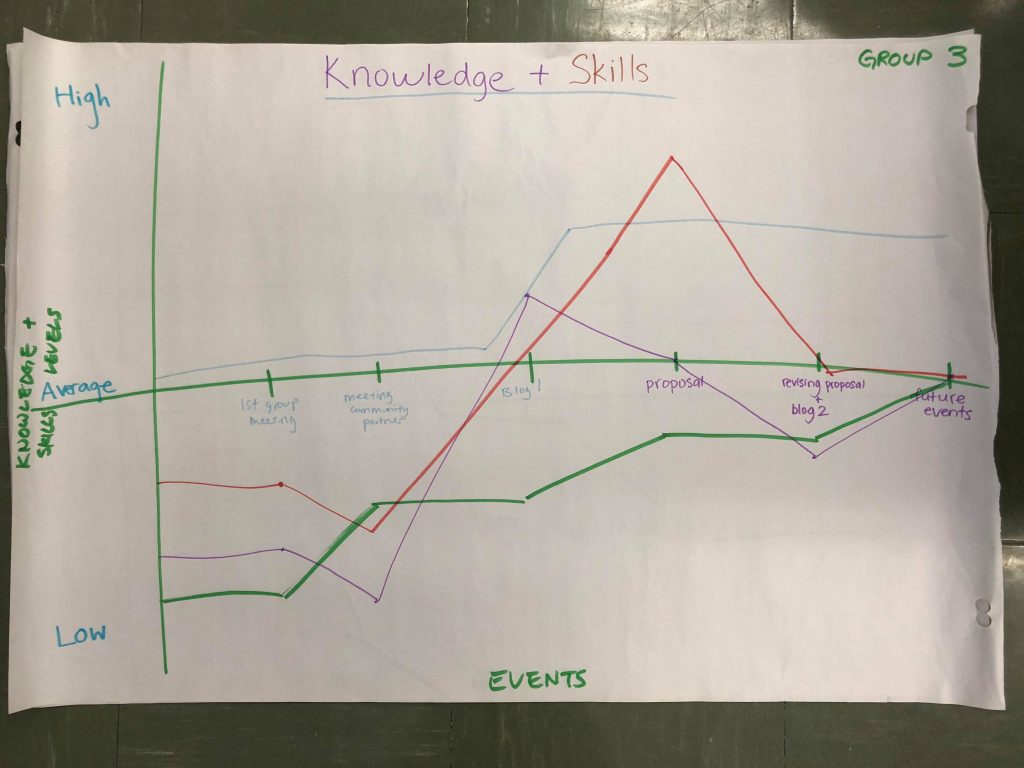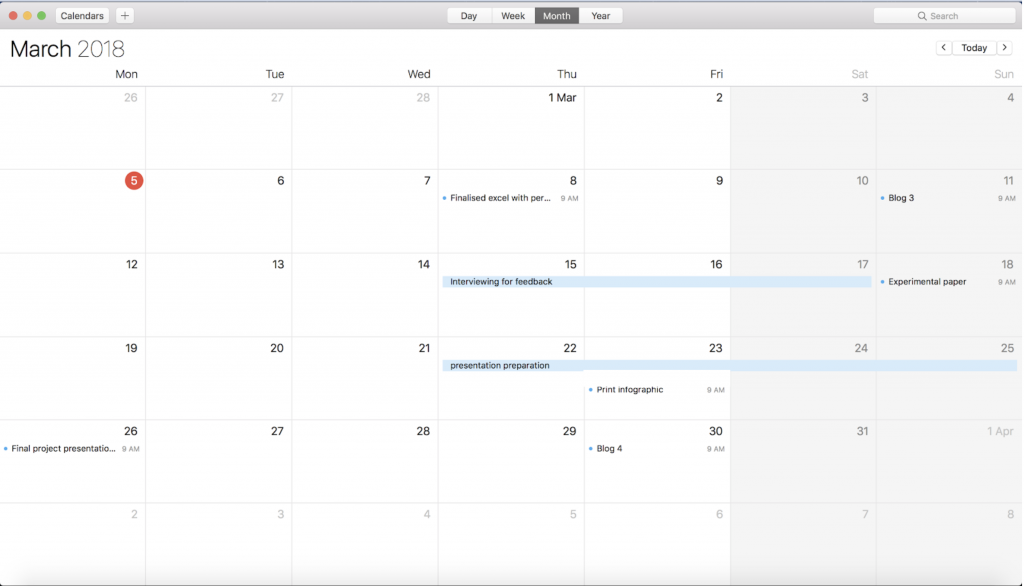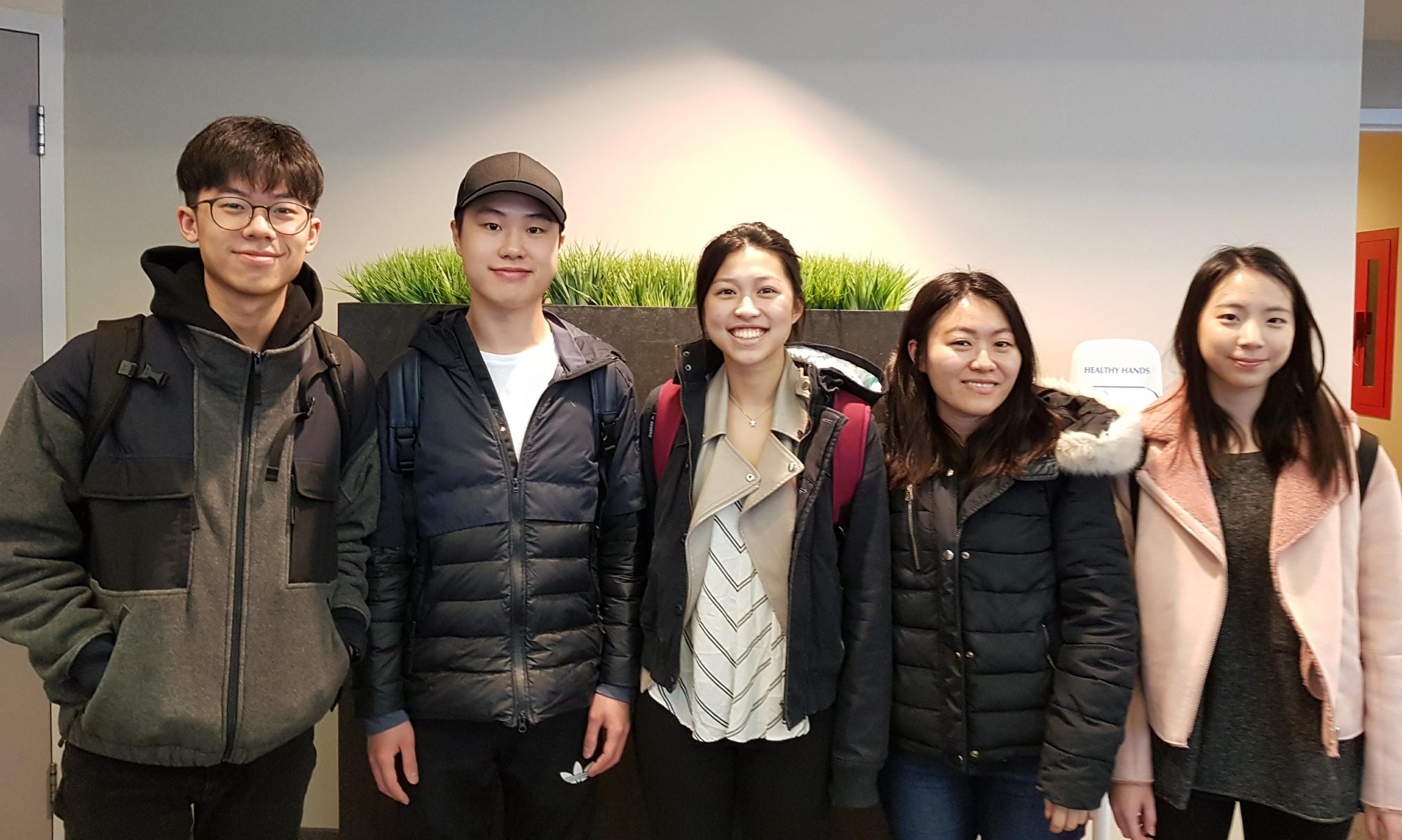“The universe doesn’t waste anything. Sometimes, we just don’t have standing to see how events or experiences are important.” ― Adrián Lamo
Let us give you a little update on how our community project is progressing! We had a lot of fun visiting the Vancouver Coastal Health Office and hearing some of the feedback healthcare professionals have on the Food Asset Map. Here is a timeline that highlights all of our weekly objectives and achievements so far.
Week 9 (Feb 25th – March 3rd)
Weekly Objectives:
- Finalize excel file and obtain permission from various community partners
- As a group, create the Moments of Significant Change in terms of our experiences and new knowledge and skills
Achievements:
- Contacted community partners to obtain information regarding food assets and to gain permission to post information onto the Richmond Food Asset Map
- Completed two Moments of Significant Change graphs
Week 10 (March 4th – March 10th)
Weekly Objectives:
- Obtain feedback for blog post 2 and revise blog post 2
- Send updated excel file to Anne
Achievements:
- Contacted certain community partners in person to ask for permission in posting information about their food assets onto the Richmond Food Asset Map
- Completed excel file and sent it to Anne to include it on the Richmond Food Asset Map
Week 11 (March 11th – March 17th)
Weekly Objectives:
- Complete blog post 3
- Update the revised blog post 2 onto our group blog
- Start interviewing community partners and gather feedback about the Food Asset Map
Achievements:
- Updated blog post 2
- Completed blog post 3 and is waiting for our Teaching Assistant’s feedback
During Week 8’s tutorial session, our group was asked to create a chart describing our moments of change through the lenses of both knowledge and skills, and experiences and emotions.
Moments of Significant Change: New knowledge and Skills
Understanding the Project + the Community
The first time we were introduced to our project, we did not know what to expect regarding the workload. However, we felt more comfortable after meeting with our partner and VCH Dietitian, Anne, who gave us background knowledge and details of the last group that worked on this project. As we progressed, we started to reach out to community partners, sharing our goals and asking for permission to use their information via email and phone. By the responses from our community partners, it was evident those who shared the same values were eager to provide us with permission to share their information onto the Richmond Food Asset Map (RFAM). By further communication with the partners that declined our request, we understood that some organizations shared different views and or were more interested in applying their resources to a more specific community in need. Moreover, communication proved to be a challenge between our groups and potential community partners given delayed responses and unsuccessful calls. To speed up the communication process, Michael actually drove to a community partner to speak to the manager directly. These struggles embody the difficulty society has in addressing global issues such as food security. As we have discussed in our lectures, transdisciplinarity and the collaborative work amongst stakeholders and organizations is crucial in addressing community food security.
Applying our knowledge to our project
Understanding where our community partners stand in the fight against food security and food justice made us realise we have only scratched the surface of the problem. Despite the development of the RFAM, more work is needed to address inequities in race, gender, and class that contributes to community food security. Our work this semester is only one step into a much greater journey towards achieving food justice in Richmond. Our goals of uniting the entire Richmond community, inclusive of vulnerable groups, to access food assets is no small feat; however, it is the beginning of a much greater movement.
Moments of Significant Change: Experiences and Emotions
Overall experience and feelings about the project
Overall, it has been a great experience in which we were given the opportunity to network with various organizations and learn more about the different programs that are offered within the Richmond community, especially since majority of our members live in Richmond. We felt a great sense of satisfaction when we were able to discover new food asset that we weren’t able to find, an example of this is Nanaksar Gurdwara Gursikh Temple, that offers free food to the community on a daily basis. Even though we felt like there was a lot of uncertainty prior to finding the various food assets, the project was not as difficult as we first expected. Although there was difficulty communicating with organizations, this experience taught us that some ways of communication are not as effective as others – driving to the centre and speaking to them in person is much more efficient than leaving a message and never hearing back. Despite the positive and negative emotions we felt from the time we met our community partner until we got our proposal back and up until now, we persisted and were able to accomplish a lot and retrieve feedback on a timely matter. Our experience so far has left us satisfied with our progress, but eager to discover our findings as we approach the end of our project


Our Graceful Dismount
“A good plan today is better than a perfect plan tomorrow.” ~ Proverb
In order to successfully complete this project, we will aim to use these following strategies:
1. Effective communication among group members
We believe that prompt communication within a group is key to successfully complete tasks. Responding to each other within 24 hours has allowed us to share ideas and information during our group discussions, resolve any confusion that may have come up part way through assignments, and provide help to each other on tasks if necessary.
2. Divide tasks among group members efficiently and evenly
For all of the assignments involved in our projects, such as completing blog posts, communicating to community partners and VCH dietitians, and conducting in-person interviews, our group has and will allocate the different tasks involved in completing the assignments efficiently and evenly. We decided that assignments can be completed quickly and successfully if the tasks are divided evenly and in a way to match the strengths of each member. For instance, Selena is the member with the most experience with blogging and working with html coding, and thus we delegated the task of editing and uploading all of the blog posts to our group blog to her.
3. Use calendar for planning of meetings and due dates
As all of us are taking many other classes in addition to LFS 350, it is easy for us to confuse group meeting times and deadlines for assignments. In order for us to stay organized and be able to visualize all deadlines to a project in one glance, our group decided to use an online calendar. Having access to this calendar guarantees that every single one of us in the group can keep track of what needs to be completed to ensure the successful completion of our project.

Our project has been successful thus far thanks to these 3 strategies, hence we are feeling hopeful about the remaining weeks.
That’s all from us for now, our next blog post will be our last blog post so stay tune as we reflect on our achievements and struggles throughout the term!
